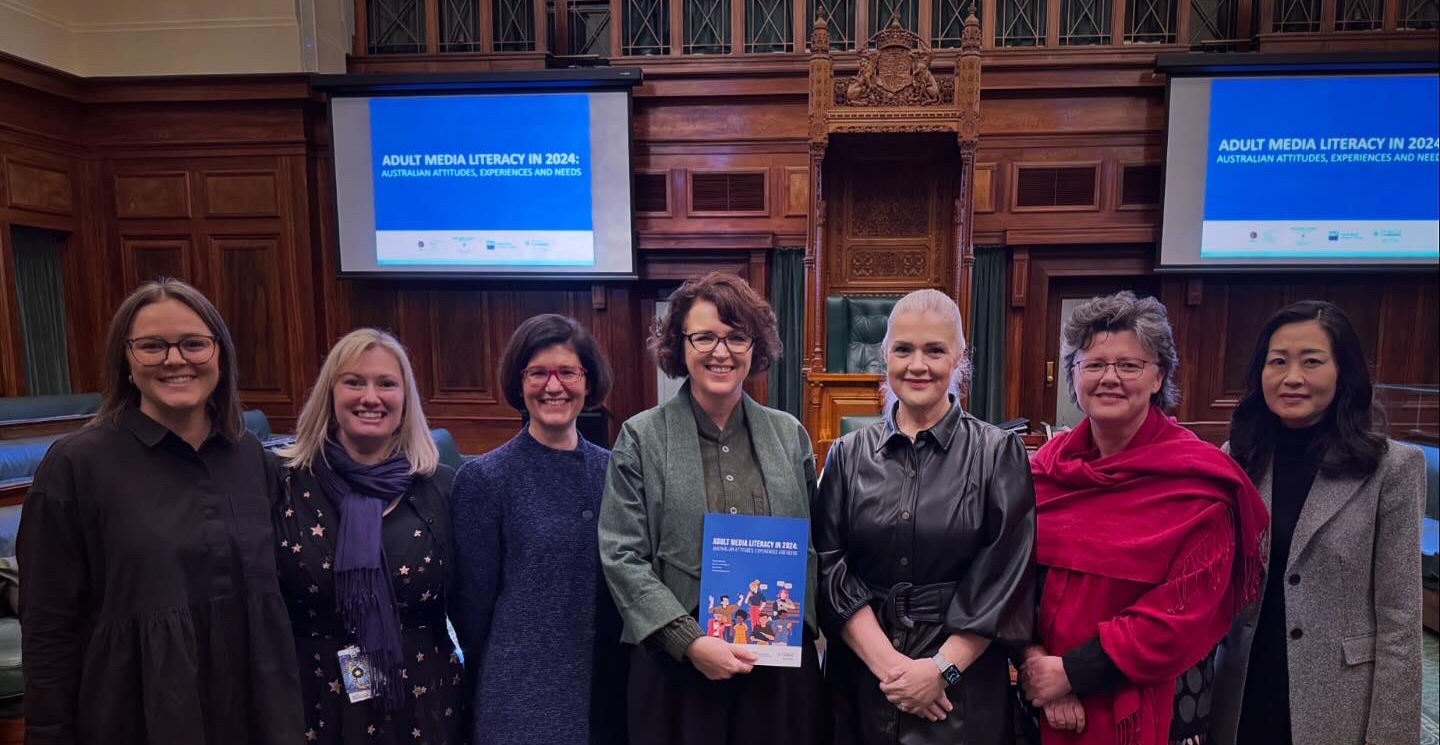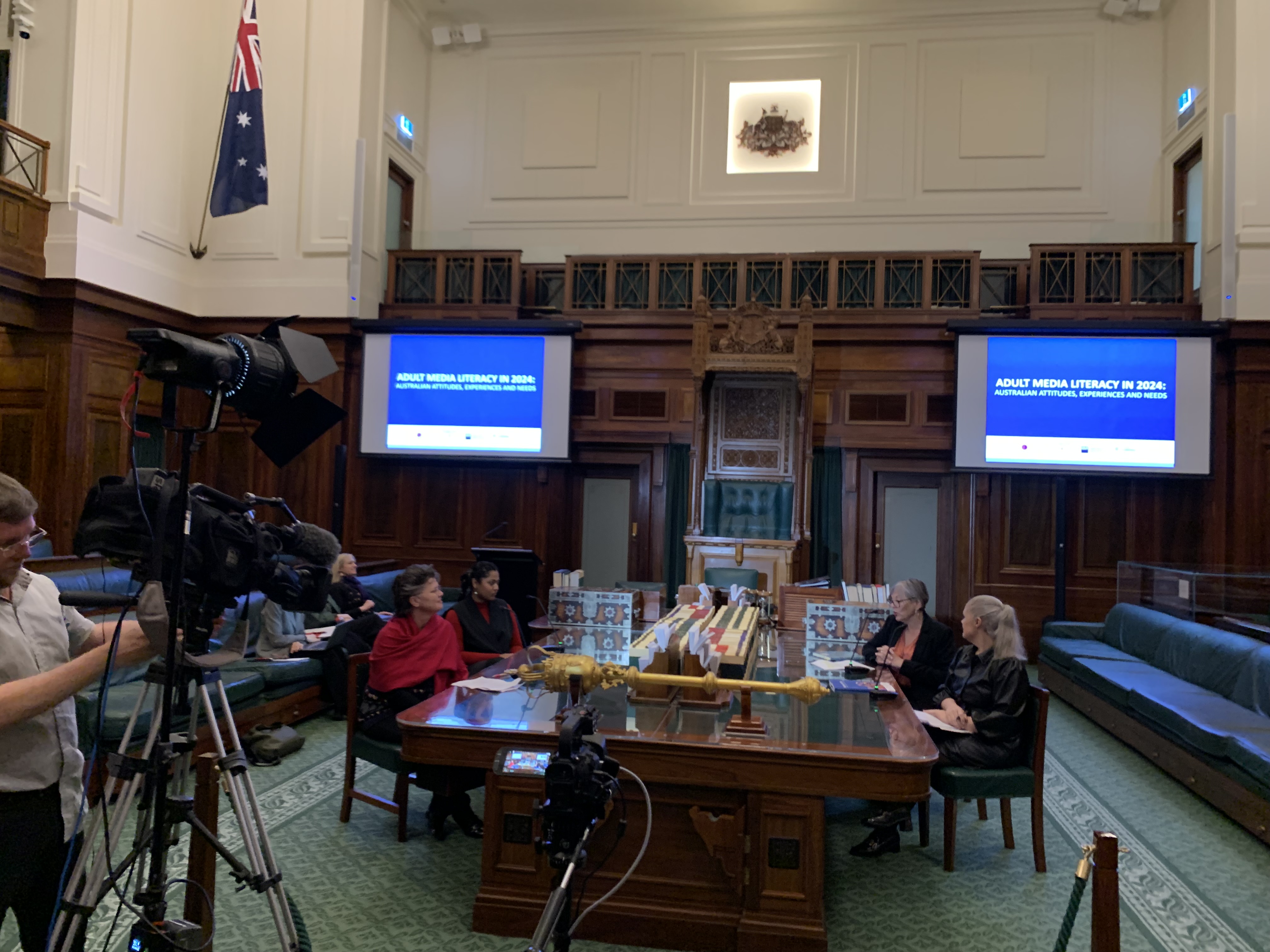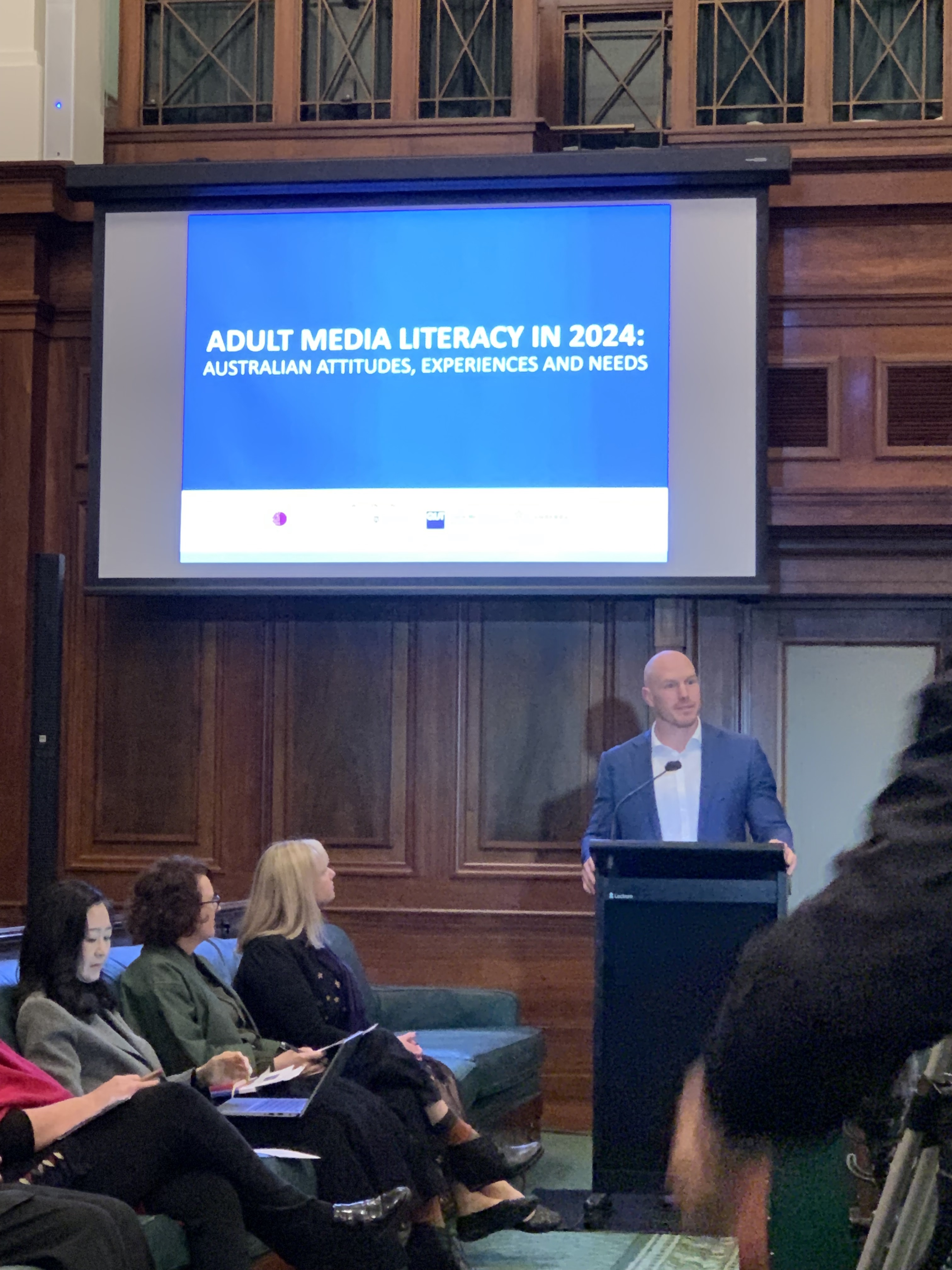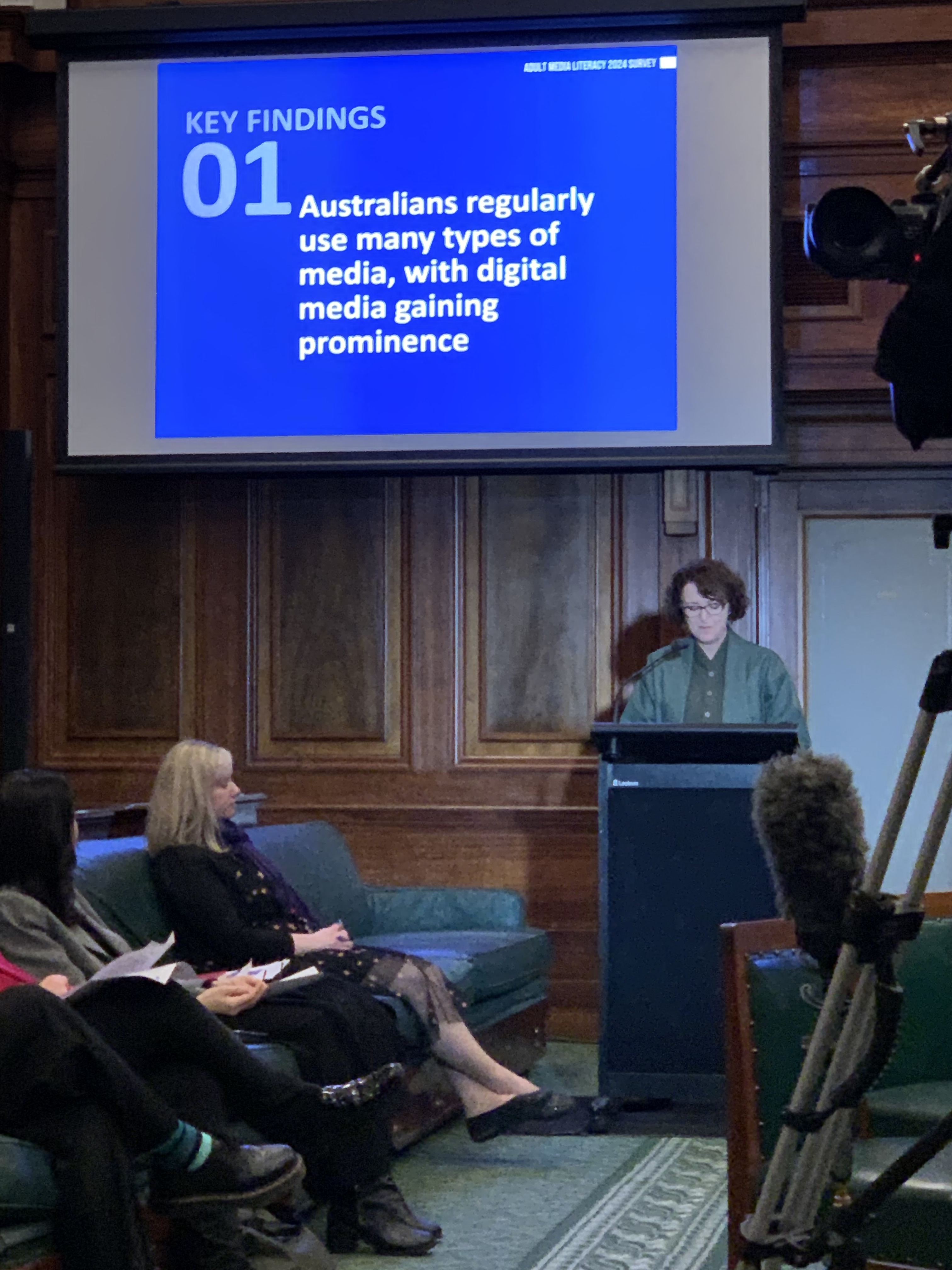
We were proud to attend the launch by Senator David Pocock today of the Adult Media Literacy in 2024: Australian Attitudes, Experiences and Needs report at the Museum of Australian Democracy in Canberra.
The report – which examines adult media literacy abilities, needs and experiences in Australia - builds upon the inaugural 2021 Adult Media Literacy survey, while also introducing new questions that respond to pressing issues and new digital media developments.
Lead author Associate Professor Tanya Notley and co-author Professor Sora Park presented the key findings:
- Australians regularly use many types of media, but social media is the most popular
- Australians have a low level of confidence in their own media abilities
- Most adult Australians want to learn more about generative AI services but they are also worried
- Australians are increasingly concerned about misinformation online and want action taken to address it
- Australians want media literacy support to be made available to all citizens
The presentation was followed by a fascinating panel with ALIA CEO Cathie Warburton providing the library perspective on media literacy alongside panelists Associate Professor Caroline Fisher (University of Canberra), Annabel Astbury (ABC Education) and Bageshri Savyasachi (The Canberra Times).
The survey findings show that most adult Australians use different types of digital media on a regular basis, but their overall confidence in their digital media abilities is quite low, with very little change since 2021.
Groups more likely to have low confidence include low income earners (48%), those with low levels of education (59%), and older Australians 60-69 years (59%) and 70+ years (73%). On the panel, Cathie talked about the role libraries can play in addressing these more vulnerable groups with libraries being trusted places with trained, skilled staff who can act as important media literacy mediators.
This is backed up by the survey findings, which show that older people, First Nations respondents, and culturally and linguistically diverse respondents are more likely to turn to library and community spaces for assistance with understanding the media and digital landscape. Results showed that libraries are a preferred learning space selected by older people in particular, with 38% of those aged 60+ wanting to learn in libraries.
Another key finding was that 82% of those surveyed agree that there is an immediate need for a sustained adult and school-based media literacy education. The finding points to the importance to all Australian students in having access to qualified school library staff with expertise in media and information literacy. On the panel Cathie commented that this shows widespread awareness of the dangers of misinformation and the need for new skills to safely navigate the media landscape and actively participate in society.
This need is shared across the population with all groups vulnerable to scams and with Generative Artificial Intelligence supercharging the amount of mis and disinformation on social media feeds and other online spaces. The panel also discussed the importance of transparency in relation to AI in order to build trust, and create accountability.
This new research again shows the importance of a national media literacy strategy with libraries playing a key role. ALIA will continue to work with our partners in the Australian Media Literacy Alliance to advocate for improved media literacy for all Australians.

Photo (L to R): Alyssa Coursey (National Film and Sound Archive), Stephanie Smith (Museum of Australian Democracy), Trish Hepworth (ALIA Deputy CEO), Tanya Notley (Western Sydney University), Annabel Astbury (ABC Education), Cathie Warburton (ALIA CEO), Sora Park (University of Canberra)



Photos (L to R): Panellists Cathie Warburton (ALIA), Bageshri Savyasachi (The Canberra Times), Dr Caroline Fisher (University of Canberra) and Annabel Astbury (ABC Education); Senator David Pocock officially launches the report; Tanya Notley discusses the key findings.